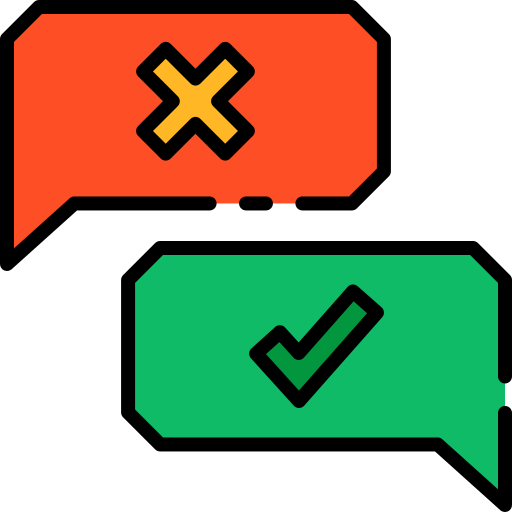Imagine you're a superhero with incredible powers.
 Photo by Mateusz Wacławek on Unsplash
Photo by Mateusz Wacławek on UnsplashYou're awesome! But you could still benefit from having a trusty sidekick to help you save the day. AI for writing is like that sidekick.
It can't (and shouldn't) be used as a replacement for your writing superpowers — your unique creativity and intelligence. But AI can help you work faster, smarter, and achieve even greater things.
There are many uses of AI for writing — knowing what they are, and how to use AI tools effectively, can help you overcome any writing challenge you might face.
Note: The information in this Byte is accurate at the time of writing. As AI is evolving quickly, tools and their features may change.
Use AI for Writing Assistance
Brainstorming
Brainstorming, or idea generating, is an area where AI can really shine.
 Photo by Stefano Bucciarelli on Unsplash
Photo by Stefano Bucciarelli on UnsplashTopic suggestions: Provide a general subject, and AI can generate potential topics. 💡
Keyword expansion: Input a keyword, and AI can suggest related terms for deeper exploration. 🔑
Idea generation: Give AI a prompt, and it can offer a list of potential ideas or angles. 💭
Prompting: AI can provide prompts or questions to stimulate your creative thinking. 🤔
Perspective shifting: AI can offer a different viewpoint on a topic to spark new ideas. 🔭
Idea combination: Give AI two or more seemingly unrelated concepts, and it can create novel approaches. ➕
Research
The internet revolutionized the way we access information. And now, collecting research materials from various sources is even faster thanks to AI!
 Photo by Priscilla Du Preez 🇨🇦 on Unsplash
Photo by Priscilla Du Preez 🇨🇦 on UnsplashEfficient information gathering: AI-powered search engines can quickly identify relevant information from vast datasets. 💁🏾
Pattern recognition: AI can identify trends, correlations, and anomalies. 🔍
Source identification: AI can suggest relevant academic papers and articles. 🪪
Verification: AI can verify information from multiple sources to ensure accuracy. ✅
Citation creation: AI can suggest appropriate citations for used information. ✍🏼
Summarization: AI can provide summaries of complex texts. 📃
Large language models (LLMs), such as Chat GPT, Gemini, and Jurrasic-1 are particularly useful tools for brainstorming and research tasks.
Use AI for Writing Improvement
Checking Grammar and Style
If you want to feel more confident about your writing, AI can help you fix errors, improve your style, and take your writing to the next level.
 Photo by Thought Catalog on Unsplash
Photo by Thought Catalog on UnsplashReal-time error detection: AI tools can identify grammar mistakes, spelling errors, and punctuation issues as you write. ❌
Style suggestions: These tools can offer recommendations for improving sentence structure, word choice, and overall clarity. 🧐
Consistency checks: AI can help maintain consistent tone and style throughout a piece of writing. ♾️
Sentence structure improvement: AI can suggest alternative sentence structures to enhance readability and impact. 👷🏾♀️
Conciseness: AI can help identify and eliminate unnecessary words or phrases, making your writing more concise. 🙊
Clarity and coherence: AI can analyze your text for clarity and suggest improvements to enhance understanding. 🧹
Vocabulary Expansion
Sometimes it's hard to find the right words — let AI help!
 Photo by Mick Haupt on Unsplash
Photo by Mick Haupt on UnsplashSynonym suggestions: AI can provide alternative words to enhance your vocabulary and avoid repetition. ♊
Style-appropriate word choices: Let AI suggest words that fit the tone and style of your particular writing task. 🧐
Personalized feedback: Some AI tools (see the options below) can provide tailored feedback based on your writing style and goals. 👨🏼🏫
Some great AI tools to improve your writing include Grammarly, ProWritingAid, Hemingway Editor, and Ginger Software.
Use AI for Creative Writing
Storytelling
Even the very best writers can experience writer's block. Use AI to help you overcome those dry spells, advance your plot, or even flesh out your characters.
 Photo by Nadine Shaabana on Unsplash
Photo by Nadine Shaabana on UnsplashCharacter development: AI can assist in creating complex characters with unique backstories and motivations. 🪴
Plot development: Get AI to help by suggesting plot twists or alternative storylines. 📚
Worldbuilding: AI can create detailed world settings, including cultures, histories, and geographies. 🌎
Create different perspectives: Ask AI to generate text from different character viewpoints. ➰
Theme exploration: Have a conversation with AI to explore different themes and their implications. 🗺️
Co-authoring: AI can generate text segments that you can refine and incorporate into your work. ⌨️
Experimentation
Maybe you want to try something completely different, but lack the confidence to go for it. You can use AI to explore in a fun, risk-free environment.
 Photo by Camille Orgel on Unsplash
Photo by Camille Orgel on UnsplashGenerate different formats: Create poems, scripts, song lyrics, or even code. 🧑🏾💻
Translate languages: Translate text while maintaining style and meaning. 💫
Genre Exploration: AI can help writers experiment with different genres and styles. 📘
Style Transfer: AI can be used to mimic the style of a particular author or genre. 💱
If you'd like to explore some AI tools for creative writing, consider checking out: Sudowrite, Rtyr, PoeticAA, or Celtx.
Important Note
While these tools can be helpful, they're not replacements for human creativity. The best results often come from combining AI assistance with your own unique voice and style.

Experiment with different tools to find the ones that best suit your needs when using AI for writing, while always being mindful of ethical and plagiarism concerns.
And remember, AI isn't perfect, so don't rely blindly on AI for writing!
Another group of UC Berkeley and Stanford University researchers found that the chatbot’s ability to identify prime numbers dropped from an impressive 84% accuracy to just 51% within three months. In short, you cannot and should not trust ChatGPT’s responses, at least not without fact-checking them first.
Knowledge Check

Which of the following statements about AI for writing are true?
A. AI can completely replace human writers.
B. AI tools can enhance a writer's creativity and productivity.
C. AI is only useful for technical writing tasks.
D. AI should be used without question or critical evaluation.
Quiz
Which of the statements above is true about AI for writing?
Take Action
To discover more about AI and ways to improve your writing, consider taking these steps:

Your feedback matters to us.
This Byte helped me better understand the topic.
